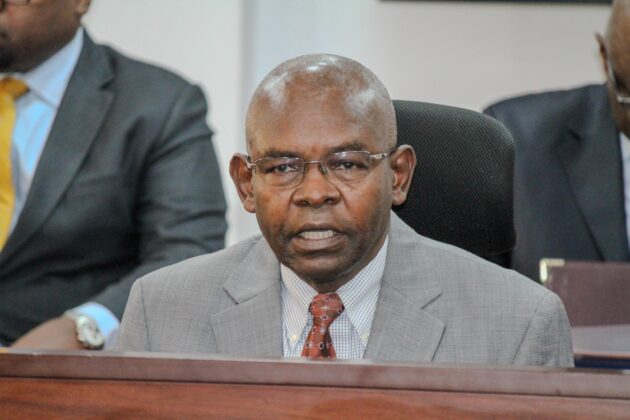
Banks to be fined for not cutting lending rates: Thugge » Capital News
NAIROBI, Kenya, Feb 6 – The Central Bank of Kenya (CBK) says banks that have not lowered their lending rates in line with the Risk-Based Credit Pricing Model (RBCPM) will be penalized.
Speaking during a press conference on Thursday, CBK Governor Kamau Thugge stated that onsite inspections are currently being undertaken.
He pointed out that despite significant reductions in the Central Bank Rate (CBR), lending rates had only declined marginally.
“The Committee observed that the CBR has been lowered substantially since the MPC meeting of August 2024, yet lending rates have only declined marginally,” he noted.
Thugge emphasized that banks must take necessary measures to further reduce their lending rates noting that it is crucial to stimulate private-sector credit growth and enhance economic activity.
He further noted that to enforce compliance with the Risk-Based Credit Pricing Model, CBK had commenced inspections across financial institutions to ensure interest rates reflect the declining cost of funds.
“To ensure that banks are implementing the risk-based credit pricing model (RBCPM), CBK has embarked on onsite inspection of banks to ascertain that they are reducing their interest rates in line with the RBCPM,” he stated.
Thugge further warned that any institution failing to pass on the benefits of reduced borrowing costs to consumers will face regulatory action.
“Under the amendment to the Banking Act recently enacted by Parliament, any bank that has not passed on the benefits of reduced costs of funds to reduce lending rates will be penalized in accordance with the law,” he said.
The CBK Governor reaffirmed that the MPC remains vigilant in monitoring economic trends and will take further action if necessary.
“The MPC will closely monitor the impact of the policy measures as well as developments in the global and domestic economy and stands ready to take further action as necessary in line with its mandate,” he stated.
The CBK has been pushing for a reduction in lending rates to boost credit access for businesses and households, particularly following monetary policy adjustments aimed at supporting economic recovery.